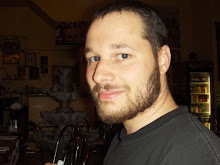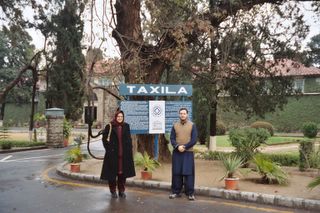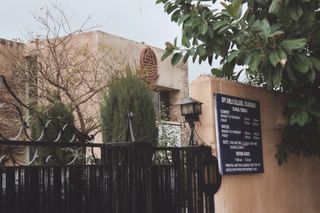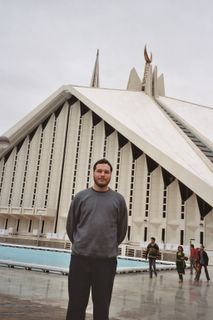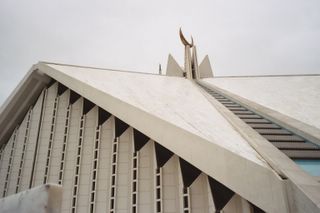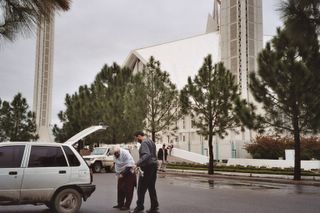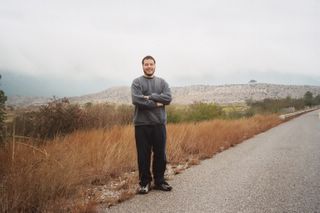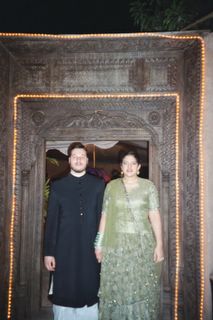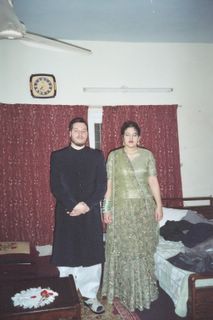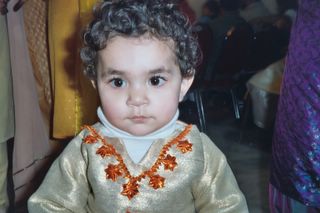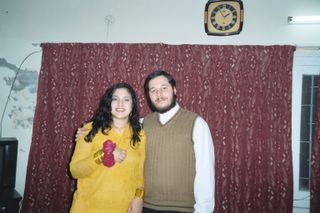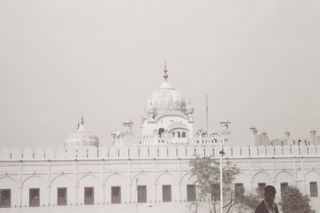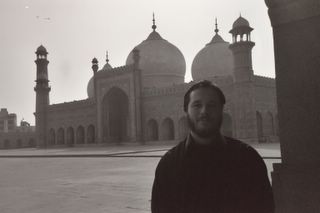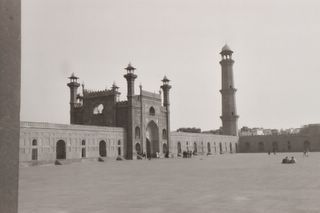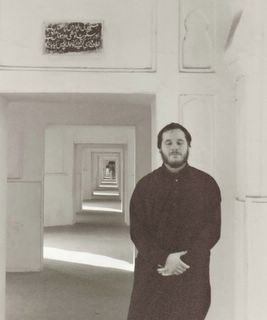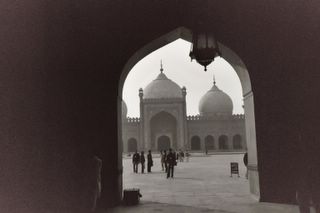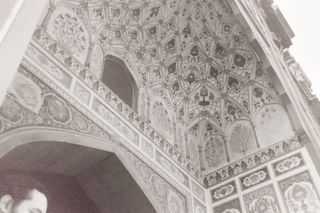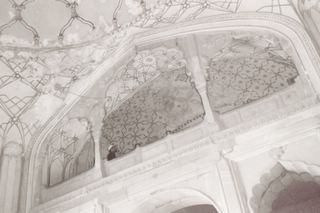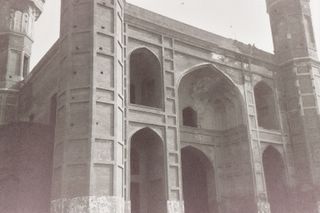The phenomena of mass violence, whether the state terrorism of the West or the free-lance violence of al-Qaeda and its offspring, has at its roots the manipulation of a large body of people by a tiny group capable of commanding considerable methods of persuasion and targeting those insecurities endemic to the host socieities. In the Western world, the ruling elites have the full run of both the state propaganda machinery and the commercial media. The peoples of the West can be made to go along with breathtakingly immoral policies (such as the Iraq War) by a two pronged effort: convincing them that the actions, no matter how extreme, are necessary in order to protect their own safety and livelyhood and inducing in them, often subtly, the belief that their own beliefs and opinions are irrelevant, that the policies have already been decided by the experts, and that any attempt to oppose the desired policies is both doomed to failure and possibly criminal. In the Islamic world we find a network of websites and a veritable flood of literature which, while highliting very real offenses of the West against the Muslims and taking advantage of poverty in which the majority of Muslims find themselves mired, offers as a solution to the modern Islamic malaise the return of the Khalifa system via revolutionary violence. The social mores of this new order, reflecting the very worst of the misogyny and xenophobia of the Wahabi and right-wing Salafi movements, are also intensively propagated via numerous pamphlets, websites, and television shows. The response to this must be two-fold: a.) social policies, both in the West and in the Islamic world must be changed in order to allow the wealth of society to benefit all of it's members (regardless of gender, ethnicity, or sect) instead of a narrow elite, b.) progressives, both Muslims and non-Muslims must compete in the propaganda war. The latter entails not merely setting up a few websites or on-line networks of like minds. We must also be engaged in producing the same type of literature (pamphlets, periodicals, and books) that the Western Right and the Islamic Right produce. For my fellow progressive Muslims I think it will be necessary to form our own Masajid as well. I think the weakness of the Progressive movement within Islam is its lack of commitment to propagating its ideas. We like to go online and complain about the Maulvis, or hold forth over a cup of coffee at a monthly meeting, but we do not wish to make the commitment of time and resources which is necessary to make Progressive Islam a viable, popular social movement with its own ideological arsenal and physical infrastructure. In the end this limits are appeal to those members of the upper and middle classes who are already predisposed to agree with us. In order to be succesful we must propagate our ideas among the people; to do that we must meet them where they are. This means not assuming that they have an internet connection or the initiative to search us out. The Progressive Muslim Union offers resources, on-line, concerning female lead prayer. Why not produce a pamphlet which can then be distributed in the Masajid, in Halal grocers, and Islamic book stores? Why not produce cheaply printed copies of books we consider to be representative of our views? Why not rent store fronts to use as Progressive Masajid? We cannot win this battle for the heart of our din by posting diatribes on a handful of websites. We must be willing to do the leg work.
Thursday, July 21, 2005
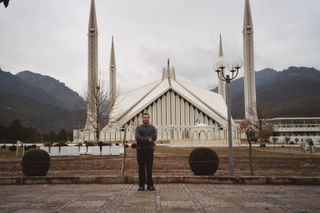
Shah (King) Faisal Mosque in Islamabad. In the background are the Margola mountains. Faisal Mosque was a gift from the Saudi king to the people of Pakistan. Designed by a turkish architect, it reflects an attempt to create a 'modern' Islamic aesthetic. It glows in an utterly unearthly manner at night, like a faery castle in a dream.

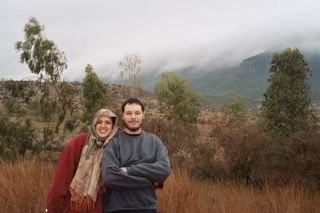
The clouds cascading like a waterfall down the Potohar mountains. This picture in no way does justice to this phenomenon; it was almost mystical. Once one crosses the Chenab and Jhelum rivers, the dry dustiness of Lahore is left behind for the cool clean air of the northern Punjab plain. Islamabad was built in the plain of Potohar, next to Rawalpindi and the Rawal lake. Together they make up a federal district, kind of like DC. Islamabad itself was built at the foot of the Margolas, a range of mountains which extend to the north. Both the Margola and Potohar mountains are Himalayan foot hills.

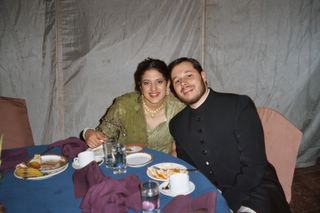
Eating at the Valima. It was the most amazing feast I''ve ever attended; an unbelievable array of kabobs, biryanis, ghost (meats), and sweets. They even had Lahori fried fish. The kheer (rice pudding) was served inside two small fired clay plates stacked together lip to lip to form a clam shell. It was quite thick and rich.

My life has entered what I think is an interim period. I have left school for now, have settled into a weekly routine of work alternated with eclectic reading, and await an opportunity to realize myself politically. I must work out some kind of politcal philosophy that I can work for, that can guide my participation in seeminglly unrelated solidarity movements and ethico-social debates. Of course a political philosophy implies an ethical philosophy, which in turn implies a religious philosophy. Resolving these issues, formulating a set of guiding principles, and exploring their ramifications is essential if I am to succesfully move on from this stage of my life.
And I also need to buckled down in my study of Urdu. Memorizing poetry is not enough. I must sit down and seriously study my textbooks.
And I may also be getting a kitten. My Jaan Begum really, really, wants one, and I've always wanted to have one. Deirdre, any suggestions on cat care?
I feel so torn and conflicted. On the one hand I greatly abhor religious extremism; it offers nothing but cheap answers, cynical manipulation and misery for those subjected to it, especially women. On the other hand secular philosophies, once vital and able to command incredible sacrifice in order to remake the world, have become pale and toothless caricatures of their former selves. I think this latter phenomenon is due to the cheap temptations that capitalism provides and to the atomic, utterly selfish individualism that it offers as its own philosophical justification. Those who suffer a guilty conscience can, of course, go on a day trip to protest on behalf of some issue which compels them to act, but a viable, life-orientating alternative weltanschaung seems impossible to find outside of religion. Various socialist and communist groups no doubt mean well when they mouth slogans of solidarity, but I just don't think they feel the sense of brotherhood that unites the Muslim Ummah (or the Sikhs, or the Jews, for that matter). We feel that we are eternally responsible for our sisters and brothers, that our actions have everlasting consequences for which we will be held personally accountable. Disaster, natural or artificial, is not merely tragedy for us, but a responsibility. Now anyone could feel this same way, regardless of whether they are religious or not; I have no doubt that most people do at some point in their lives. Secular philosophies, however, give no rational justification for these feelings other than perhaps their utility in holding an increasingly global society together. Only religion, whether it be Islamic, Christian, or Jewish, Hindu, Sikh, or Buddhist, can provide the theoretical justification necessary to keep the fact of solidarity alive when the emotion wears thin (as all emotions do). An excellent, non-Islamic example of this would be the Quakers. Since their appearance three centuries ago, the Quakers have consistantly been on the front lines of the struggle for liberation. They have been able to do so because in defeat they can draw upon their own inner, spiritual resources ('the inner light') to keep from becoming disillusioned and in victory they have a sense of eternity hanging over them to keep them from corruption. Perhaps the Sufis can act in a similar manner among the Muslims.
Thursday, July 14, 2005
The problem with establishing an Islamic state that would require people to pray, to fast, and do adorn themselves Islamically (i.e. dari and hijab) is that it would induce people to do these things out of fear of reprisal instead of taqwa. This would essentially make the state a partner with Allah ta 'ala in the devotions of the people, resulting in both shirk and hypocrisy. Any Islamic state, to tremain genuinely such, would have to be founded on Islamic values and principles (such as justice, equality, tolerance, and compassion) while allowing the people themselves to form the practical laws of the community according to their own understanding of the deen. Legislating the opinions of a narrow cadre of self-appointed scholars leads only to conceit and corruption among the leaders and servility and poverty among the people.
Very soon after I converted to Islam I met Imam Bashar 'Arafat. He is an incredibly spiritual person and has an aura of peace about him that I've never sensed in any other person. He taught me that the essence of Islam is to have a heart that is present with the creator and to act towards the creation in the best possible way. This thought still inspires me.
Friday, July 08, 2005
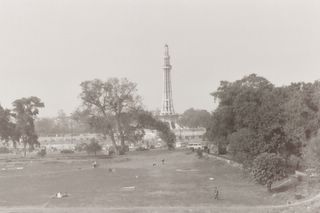
Minar-e-Pakistan. It marks the site where Quaid-e-Azam (Greatest Leader) Muhammad Ali Jinnah announced the acceptance by the Muslim League of the Lahore Resolution calling for the establishment for the Muslim State of Pakistan. Later, during his inaugural speech as Governor-General, Quaid-e-Azam said "You are free, free to go to your temples, you are free to go to your mosques or to any other places of worship in this state of Pakistan. You may belong to any religion or caste or creed that has nothing to do with the business of the state... and you will find that in course of time Hindus would cease to be Hindus and Muslims would cease to be Muslims, not in the religious sense, because that is the personal faith of each individual, but in the political sense as citizens of the State."

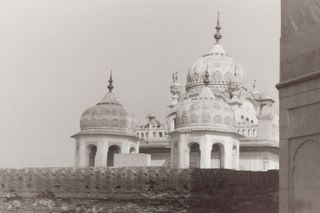
A closer view of the Gurudwara. Because Pakistan is an Islamic Republic and Islam teaches respect for followers of all religions, Pakistan has pledged to take care of all historic sites within its territory both Muslim and non-Muslim. The Gurudwara is an example of how it has succesfully executed this trust. It recently had its marble floors restored. It does not go unused; Lahore has a small but thriving Sikh community who proudly and without fear wear their distinctive turbans around the city.

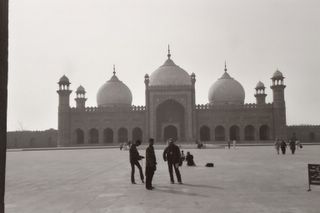
The Badshahi Masjid, built by the Mughal Emperor Aurangzeb Alamgir who died at the beginning of the Eighteenth Century. He was the son of Shah Jahan, the builder of the Taj Mahal. Located within are relics of Holy Prophet (Peace be upon him). Pakistan inherited the site in a poor state, but has since done an excellent job in restoring it to its former glory.

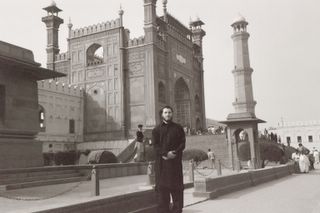
Myself standing in front of the entrance to the masjid. To my left is the tomb of Allama Iqbal, the creator of the idea of Pakistan as well as its national poet. He was a brilliant and original philosopher who synthesized native Islamic philosophy with the best and most progressive aspects of the western tradition. He was an unflinching advocate for political democracy and for the rights of the oppressed. The fact that he is so revered and yet was the grand son of Kashmiri converts from Hinduism is a testimony to the Islamic ideals of universal brotherhood and judgement according to character as opposed to ancestry.

